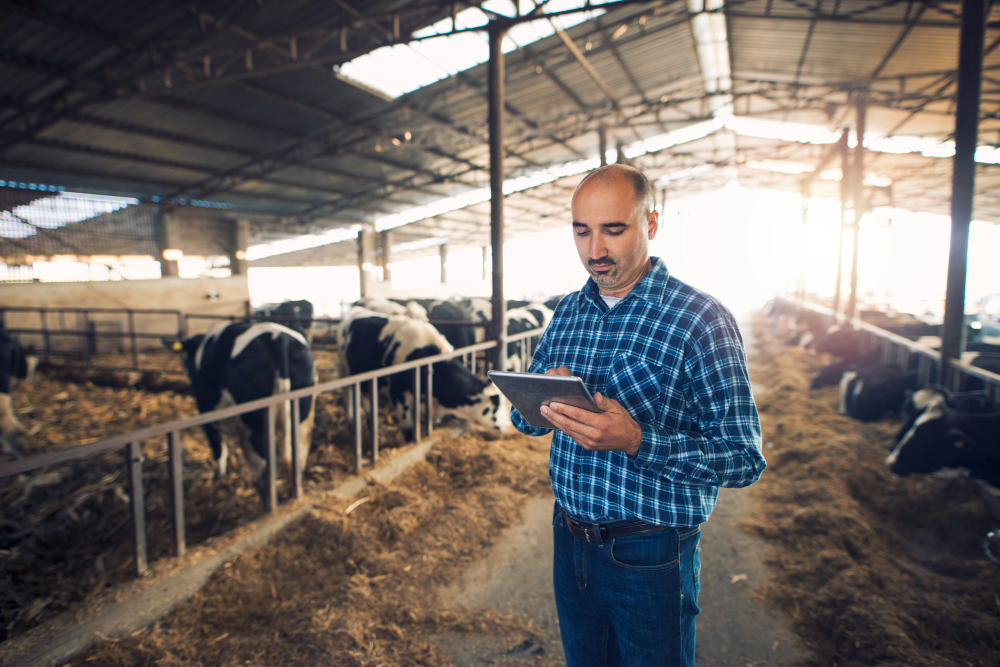Transforming Livestock Farming: A Blueprint for Sustainable and Ethical Agriculture

The landscape of livestock farming is undergoing a radical transformation. With growing consumer demand for ethically sourced meat and dairy and the increasing environmental challenges of traditional farming, livestock farmers are seeking innovative ways to raise animals sustainably and humanely. Farmers like Olivia, who manages a cattle farm in Argentina, are leading the way in balancing profitability, sustainability, and ethical responsibility.
Traditional livestock farming has been a major contributor to climate change, with methane emissions, deforestation, and water-intensive feed crops adding to its ecological impact. Sustainable livestock farming presents a solution by reducing this footprint while maintaining food security.
Key Sustainable Practices:
Rotational Grazing: Mimics natural grazing patterns by moving livestock between pastures, allowing grass recovery, reducing soil erosion, and enhancing biodiversity.
Precision Feeding Systems: Optimizes nutritional intake, reducing feed waste and methane emissions by preventing overfeeding.
Water Conservation Techniques: Implementing efficient water use strategies, such as rainwater harvesting and automated irrigation, reduces water waste.
Impact:
By adopting these sustainable methods, farmers reduce carbon emissions, enhance soil fertility, and improve livestock productivity, making livestock farming more environmentally responsible.
Consumers are more informed than ever, demanding ethically produced animal products. Sustainable livestock farming prioritizes the humane treatment of animals, ensuring better health, quality of life, and marketability.
Ethical Livestock Practices:
Free-Range Grazing: Allows livestock to roam in natural environments, leading to healthier animals and higher-quality meat and dairy.
Minimal Stress Handling: Utilizing low-stress herding techniques reduces anxiety and improves animal welfare.
Organic and Natural Feed: Avoiding antibiotics and hormones ensures healthier livestock and aligns with consumer preferences for organic and non-GMO products.
Impact:
These ethical practices allow farmers to tap into premium markets for sustainably raised meat and dairy, increasing profitability while maintaining high standards of animal welfare.
As in crop farming, technology is transforming livestock farming, making it more efficient, data-driven, and sustainable.
Innovative Technologies in Livestock Farming:
Livestock Monitoring Systems: Wearable sensors track vital signs, movement, and stress levels, allowing early disease detection and improving health management.
Drones and Remote Sensing: Monitor large pastures remotely, reducing labor costs and providing real-time insights into animal behavior and grazing patterns.
Automated Feeding and Watering Systems: Reduce waste and ensure consistent nutrition for livestock.
Impact:
Technology enhances productivity, reduces costs, and ensures real-time health monitoring, helping farmers manage their livestock efficiently and ethically.
Adopting sustainable livestock farming requires both financial resources and expert guidance. Virtual Delivery Centers (VDCs) are bridging this gap by offering on-demand expertise and technology solutions.
How VDCs Support Livestock Farmers:
Access to Sustainable Farming Experts: Connects farmers with specialists in rotational grazing, precision feeding, and regenerative agriculture.
AI-Driven Data Analysis: Helps analyze livestock health and optimize grazing patterns through predictive modeling.
Smart Supply Chain Integration: Ensures traceability and efficiency in the farm-to-market journey.
Training & Skill Development: Provides farmers with knowledge on best practices for ethical and sustainable farming.
Impact:
By leveraging VDCs, farmers can accelerate their transition to sustainability, reduce operational costs, and meet growing market demands for ethical and eco-friendly products.
The shift towards sustainable and ethical livestock farming is inevitable. Farmers who embrace these changes will benefit from:
Higher profitability through premium markets.
Reduced environmental impact and better compliance with sustainability regulations.
Increased consumer trust and brand loyalty.
Platforms like AiDOOS and Virtual Delivery Centers (VDCs) are equipping farmers with the necessary tools to navigate this transition successfully, ensuring that livestock farming remains profitable, ethical, and environmentally responsible.
Are You Ready to Transform Your Livestock Farm?
Explore how AiDOOS and VDCs can help you implement sustainable and ethical farming solutions today!

For modern telecom enterprises, delivering exceptional QoS is no longer optional—it’s a brand differentiator and a strategic lever for growth. Static provisioning models won’t cut it in a world of hyper-dynamic data usage.